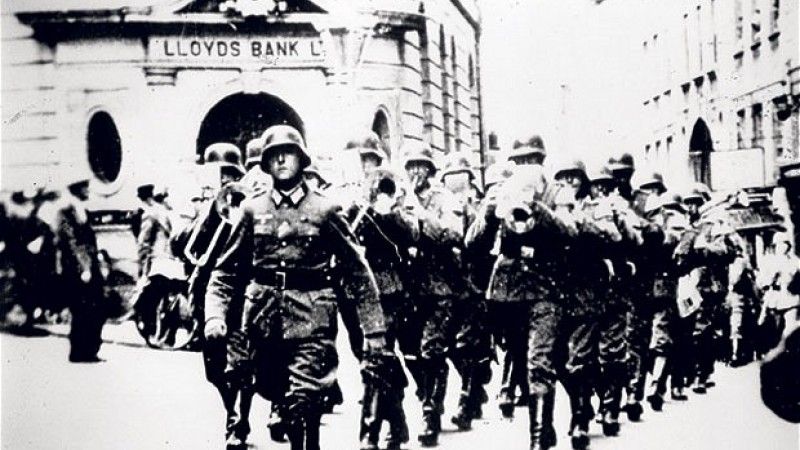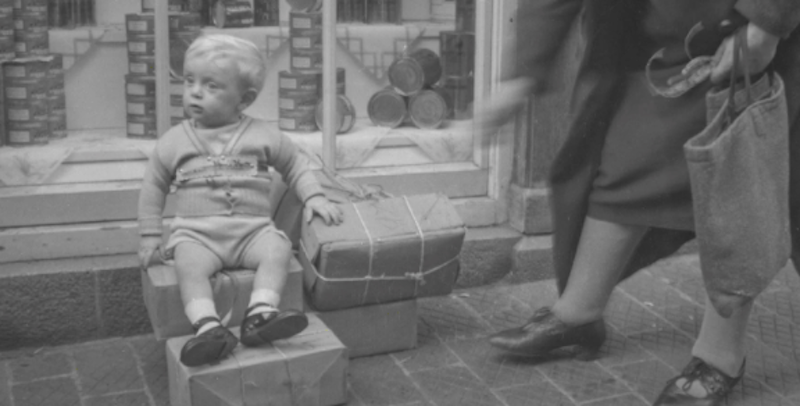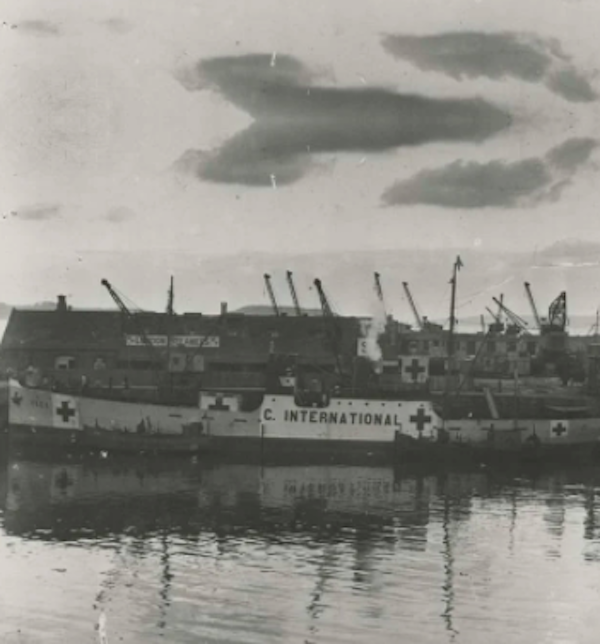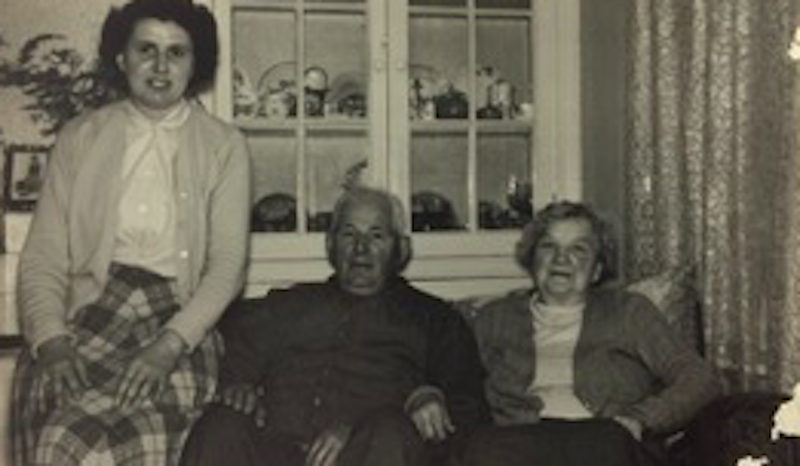


Through her recently discovered diary entries, Irene Rose - who lived and worked in Guernsey during the Occupation - explains how the island got creative with what little food there was, and the "small pockets of hope" that carried her through those dark times...
Those diary entries have been serialised by Express this week:
"Up until the winter of 1940 food had been fairly adequate but we had already learnt to make a substitute of sugar beet to take the place of sugar.
When potatoes were available we took them to the bakery where they were cooked in a furze oven. They came out full of smuts but edible!
In April 1942, a notice in the paper stated that 11lb of potatoes would be available on ration cards – we kept back a couple and let them go to seed. By carefully cutting where an eye appeared we could get five plants from one potato.

Pictured: Food was sent over in Red Cross parcels (image from visitguernsey.com courtesy of the Priaulx Library & Occupation Archive).
As the war progressed the Germans had difficulty getting ships to the island so we had to improvise more and more; carrot tea, parsnip coffee, bramble for tobacco. My father made 'terrape' - a tin drum filled with sawdust which cooked potatoes, swedes or anything which could be bartered. When it was boiling it would be played in a hay box. We took hay boxes with lunch in to the beach instead of sandwiches. Dried seaweed (carrageen moss) and skimmed milk - if you queued long enough to get any - made a blanche-mange. We also made potato cakes, parsnip soup and crisps from potato peelings.
We gleaned corn from the fields and usually managed to find a friend who would grind it for us.
During the last two years of the Occupation food was desperately short – equally so for the Germans and foreign workers. Nothing was safe, including cats and dogs, and anything you tried to save had to be taken to the bedroom or bathroom at night.
In January 1945, our meagre rations were augmented with a Red Cross parcel. One parcel per person per month was allocated until the end of the Occupation.
I worked in the food office. The distribution of food parcels meant a lot of work; only one parcel was allowed per person and it was necessary to ensure that people leaving hospital had theirs and not the hospital’s.

Pictured: The Red Cross operated a lifeline service for Guernsey people (Image from visitguernsey.com courtesy of the Priaulx Library & Occupation Archive).
All parcels were allocated through sugar figures. All sugar in the island was reserved for children and they got slightly larger amounts as they got older. The adults were allocated through cereal figures. We would work well into the evenings – at its worst the weekly ration was three and a half pence of cereals, no bread or other food.
Old people opened their parcels and sat on a seat, eating anything that didn’t need a tin opener. Often they were ill after. The rest had to last a month.
We were without cars and buses during the war. They were confiscated and sent away with as little as £1 being paid for a £1,000 bus. It was funny to see the advocates cycling to the court, complete with their robes, top hats and brief cases!
Some enterprising people started a horse drawn bus using horses normally used for farm work and old carriages. As the country people could not get into town unless they cycled (on the RIGHT side of the road), they found these buses very useful.
Anyone getting married had to go by horse and cart or walk.
All boat owners living outside St Peter Port were ordered to bring their boats to the Town harbour. The old fishermen who spent hours mending their nets were very upset.
Sometimes fishing was banned completely. When the fishermen were allowed out they had a fully armed German on board and had to keep to five miles off the shore. Even so, the Germans took 60% of their catch.
The Germans made a railway around the island going through people’s gardens if they were in the way. So much concrete was used in the making of towers and tunnels.

Pictured: Irene Rose on the far left.
Small pockets of hope:
In 1943, the British ship, Charybdis was bombed and sank with many young lives lost. Many bodies were retrieved from the sea. The Germans allowed a military funeral but was not prepared for the 900 wreaths that the islanders produced – all red, white and blue flowers. It looked like a carpet of flowers. Around 5,000 people attended but this was the last time that a mass of people were allowed together.
An Australian pilot, who bailed out after a Messerschmitt (a German aircraft) had shot a hole in the petrol tank, was held prisoner for a while at the Happy Landings Hotel and we waved and cheered when he was given exercise."
Mrs Rose's diary will conclude tomorrow, with her recently discovered memories of Liberation Day itself.
Comments
Comments on this story express the views of the commentator only, not Bailiwick Publishing. We are unable to guarantee the accuracy of any of those comments.